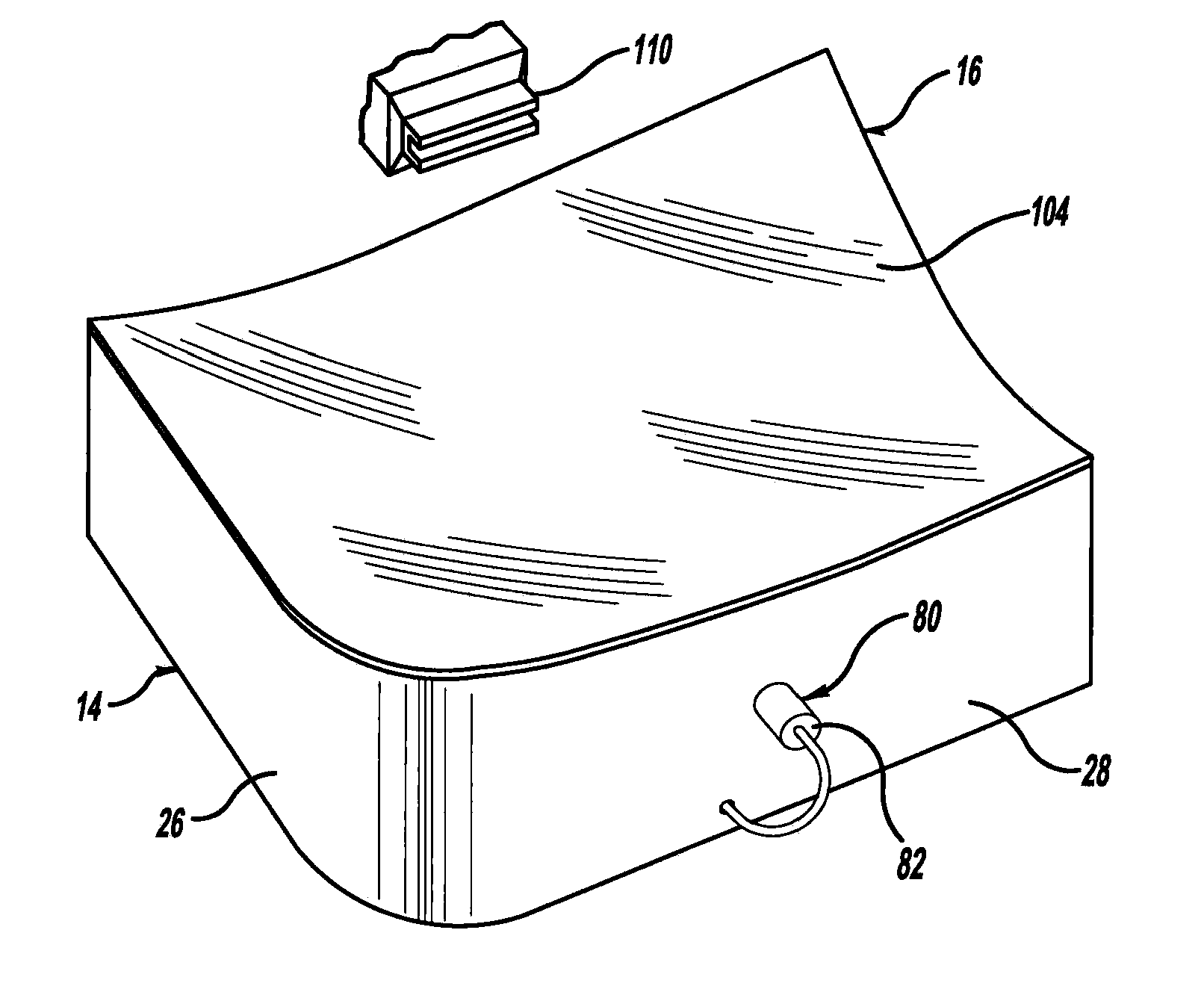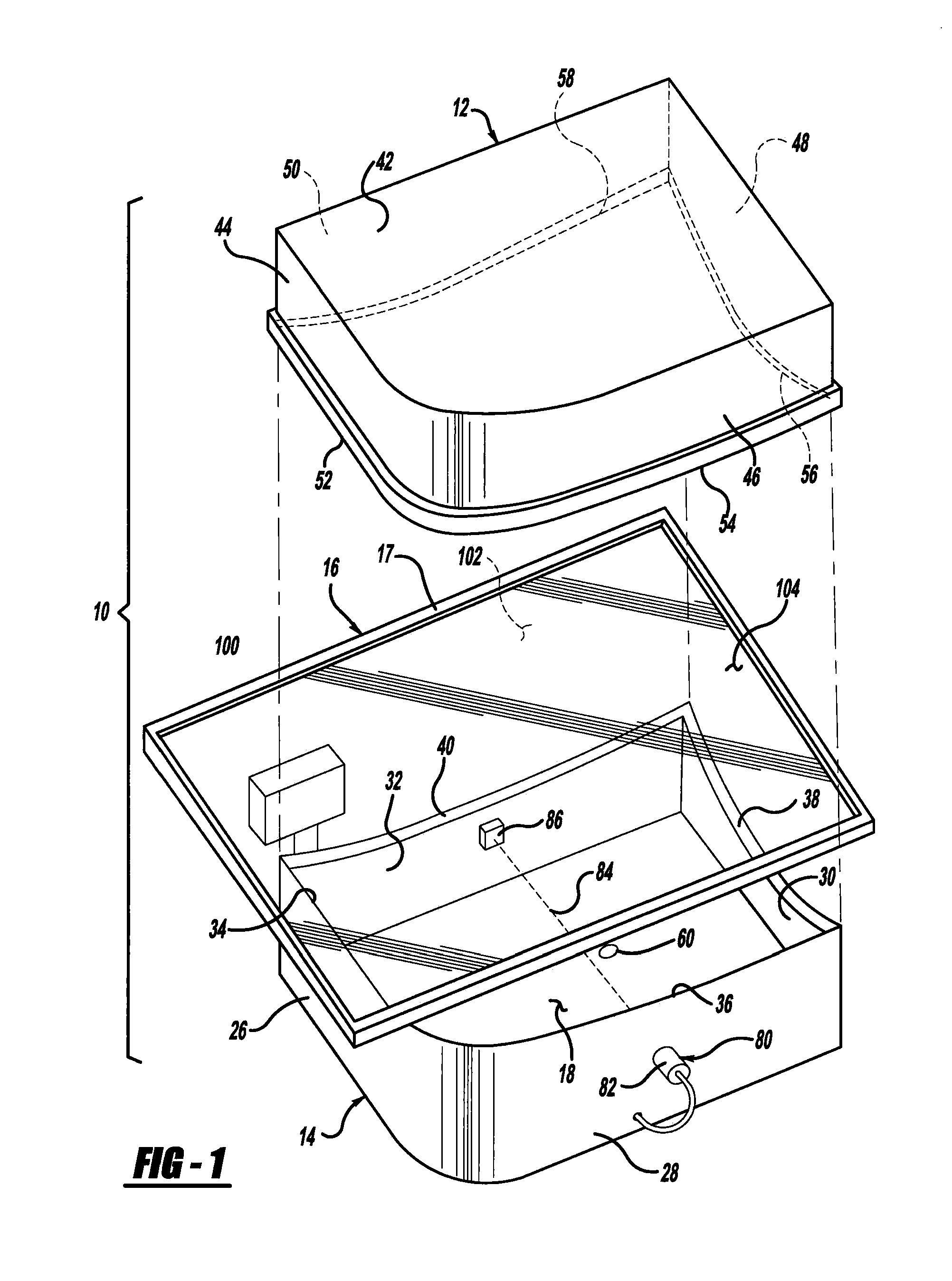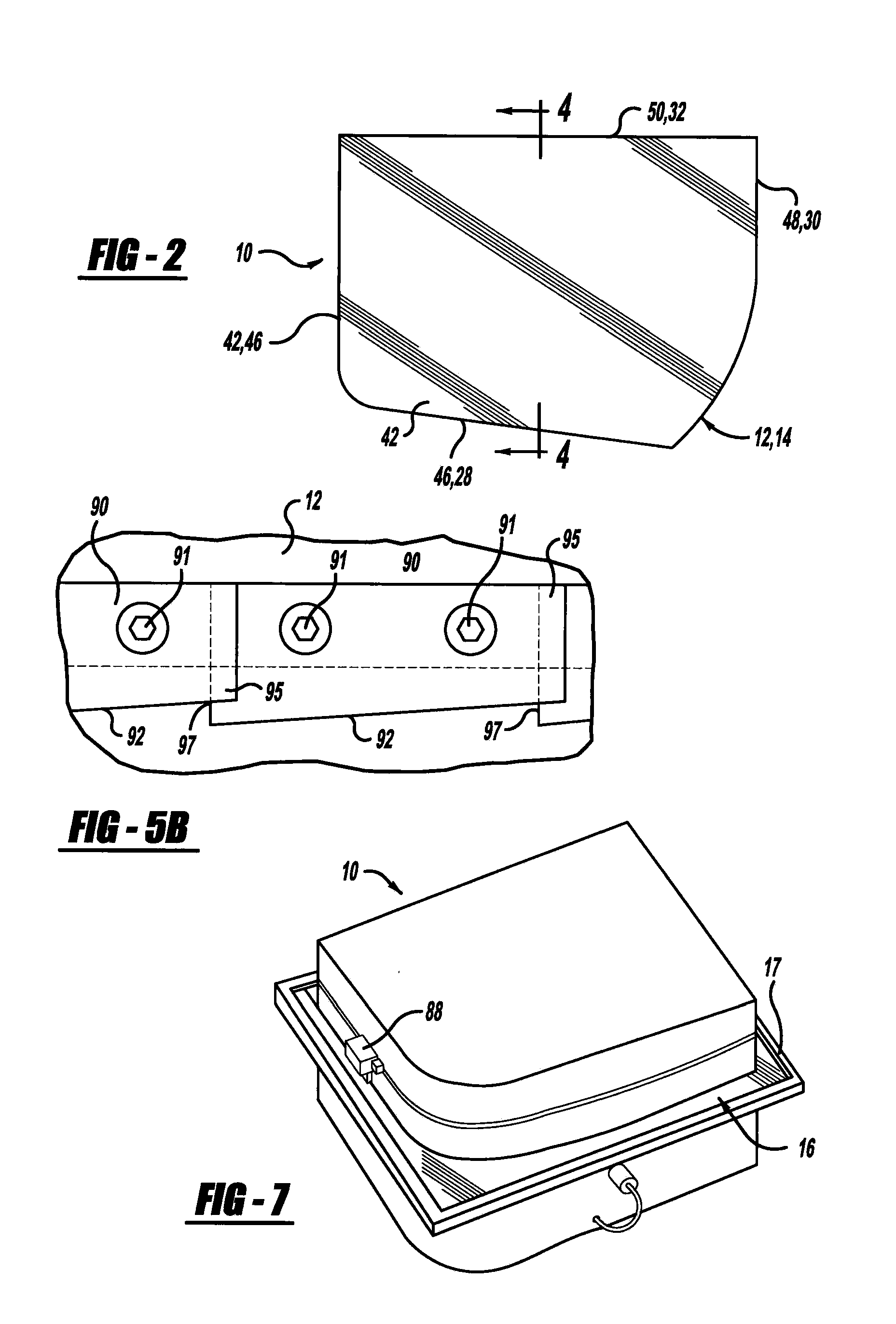High-impact, transparent, distortion-free polymeric sheet and windshield
a polymer sheet and windshield technology, applied in the field of polymer materials, can solve the problems of reducing the service life of the transparent panel, less preferred applications, and not having as high impact strength as other polymeric materials, and achieve excellent optical properties and weatherability, high impact strength, and outstanding resistance to effects
- Summary
- Abstract
- Description
- Claims
- Application Information
AI Technical Summary
Benefits of technology
Problems solved by technology
Method used
Image
Examples
Embodiment Construction
[0021]The following description of the preferred embodiments is merely exemplary in nature and is in no way intended to limit the invention, its application, or uses.
[0022]With reference to the Figures, there is shown a forming mold 10 including upper and lower halves 12,14 that come together to form a heated sheet of polymeric material 16 therebetween. The sheet 16 is preferably an optical quality polycarbonate material and is retained within a rigid frame 17 having a length and width somewhat greater than that of the upper and lower halves 12,14, and that clamps about the complete peripheral edge of the sheet 16. Edges of the upper and lower halves 12,14 are contoured to define a desired end form for peripheral edges of the sheet 16. A vacuum is created within an interior space 18 of the lower half 14 for drawing the sheet 16 downward, thereby forming the sheet 16 as defined by the contoured edges of the upper and lower halves 12,14. The drawing process ensues until the sheet 16 c...
PUM
| Property | Measurement | Unit |
|---|---|---|
| transparent | aaaaa | aaaaa |
| glass transition temperature | aaaaa | aaaaa |
| melt temperature | aaaaa | aaaaa |
Abstract
Description
Claims
Application Information
 Login to View More
Login to View More - R&D
- Intellectual Property
- Life Sciences
- Materials
- Tech Scout
- Unparalleled Data Quality
- Higher Quality Content
- 60% Fewer Hallucinations
Browse by: Latest US Patents, China's latest patents, Technical Efficacy Thesaurus, Application Domain, Technology Topic, Popular Technical Reports.
© 2025 PatSnap. All rights reserved.Legal|Privacy policy|Modern Slavery Act Transparency Statement|Sitemap|About US| Contact US: help@patsnap.com



